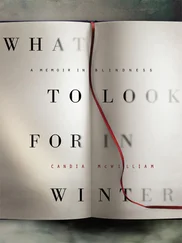Edeet Ravel - Look for Me
Здесь есть возможность читать онлайн «Edeet Ravel - Look for Me» весь текст электронной книги совершенно бесплатно (целиком полную версию без сокращений). В некоторых случаях можно слушать аудио, скачать через торрент в формате fb2 и присутствует краткое содержание. Жанр: Старинная литература, на английском языке. Описание произведения, (предисловие) а так же отзывы посетителей доступны на портале библиотеки ЛибКат.
- Название:Look for Me
- Автор:
- Жанр:
- Год:неизвестен
- ISBN:нет данных
- Рейтинг книги:5 / 5. Голосов: 1
-
Избранное:Добавить в избранное
- Отзывы:
-
Ваша оценка:
- 100
- 1
- 2
- 3
- 4
- 5
Look for Me: краткое содержание, описание и аннотация
Предлагаем к чтению аннотацию, описание, краткое содержание или предисловие (зависит от того, что написал сам автор книги «Look for Me»). Если вы не нашли необходимую информацию о книге — напишите в комментариях, мы постараемся отыскать её.
Look for Me — читать онлайн бесплатно полную книгу (весь текст) целиком
Ниже представлен текст книги, разбитый по страницам. Система сохранения места последней прочитанной страницы, позволяет с удобством читать онлайн бесплатно книгу «Look for Me», без необходимости каждый раз заново искать на чём Вы остановились. Поставьте закладку, и сможете в любой момент перейти на страницу, на которой закончили чтение.
Интервал:
Закладка:
I began phoning the people on my list. No one asked why I needed information; they assumed I was trying to help a Palestinian in trouble.
One had a brother in Intel igence, but he was “a stickler.” Another had a brother-in-law with a lot of power, but “he’d open a le on you.”
The others didn’t have any connections.
It was too soon to feel discouraged. Possibly I would have to try old friends of my parents. The problem was that they’d want to see me. I’d have to invest an entire evening in each one, just to get information they might not have; they would also want to know why I needed to talk to an of icer in the upper military echelons. I would try my coworkers at the insurance of ice first. I’d also ask Tanya; more than once I’d seen extremely distinguished-looking men walk confidently up the stairs to her flat.
I decided to nish my novel in the meantime; I was very close to the end. I wrote the last few sex scenes and sent the le to my publishers.
Then I signed a form relinquishing copyright and crossed the street to the City Beach Hotel to fax it.
Working on the novel had exhausted me and I lay down for a nap on the sofa, but I had a crabby sleep, as my mother used to say, crowded with distressing dreams. I dreamed, among other things, that Volvo had his legs back, thanks to a miracle drug that rejuvenated cel s. But when he tried to walk, he couldn’t. He’d forgot en how.
Despite the bad dreams, I didn’t real y want to wake up. I tried to pul myself out of sleep because I knew that something very important and wonderful had happened in my waking life, something which required my at ention. I was also aware that it was Wednesday and that I had to get ready for my weekly dinner with Vronsky. But another part of me seemed to be stuck deep inside the disjointed, garbled images.
Only with the greatest e ort was I able to break loose. I sat up groggily on the sofa and checked my watch: I had to meet Vronsky at seven. I had just enough time for a quick shower.
The rst time Vronsky phoned I was very surprised. It happened a few weeks after our medical relationship had come to an end; he cal ed and asked whether I wanted to go out to dinner with him.
“You know I’m married,” I said right away, to avoid any misunderstanding.
“Oh no, nothing like that, I mean … I didn’t mean …” He was very flustered.
“Sure, I’d enjoy it very much.”
“I’l show you the article I wrote about you. Not that it wil interest you much, it’s quite technical. Stil , yours was a most unusual case. At seven, then?”
We set led on an Italian restaurant a few blocks from my building, near the American embassy.
After that we ate at the same restaurant every Wednesday, from seven to eight-thirty or nine.
Vronsky was meticulous. He liked everything to be in its place, at the right time, in the right way, and it would have driven me crazy had I seen him more often; but since our meetings were limited to two hours a week, his need for order endeared him to me. He was meticulous but at the same time he never seemed to notice anything around him or anything about me. I soon found out that this was only an act, that in fact he took it al in, every detail, and if he didn’t comment on what he saw and felt, it was only because he was afraid. Afraid of me, afraid of himself, afraid also of the future, which would inevitably bring change. He was considerate and made an e ort to be friendly and there were times when I felt maternal toward him, even though he was fty-six, nearly twenty years older than me. He had a grown son who lived in Berlin and designed costumes for avant-garde plays. His wife had died years ago, and he lived with his unmarried sister Sonya, a mathematician. Sonya was deaf.
I had wondered, at rst, whether Vronsky was courting me. Odelia was convinced that he was interested, but I nal y decided this was not I had wondered, at rst, whether Vronsky was courting me. Odelia was convinced that he was interested, but I nal y decided this was not the case. The signi cant looks or gestures or smal verbal hints that indicate a desire to move beyond a platonic relationship never made an appearance. He needed the friendship—that was al . And I enjoyed his company. Sometimes I teased him, because he was so formal and reserved.
I was stil on the sofa, trying to summon the initiative to get up and shower, when there was a knock on the door, fol owed by a muted voice: “It’s me, Miss Fitzpatrick. Anybody home?”
Miss Fitzpatrick was one of the volunteers who helped with Volvo. When Volvo rst moved into the building it quickly became evident that he was more than I could handle alone. He had no visitors; he had broken al ties with the past, he said. I placed an ad in the paper several weeks running; I had wanted the ad to read, Interesting, intel igent young man, con ned to wheelchair, needs volunteer companionship and help, but Volvo insisted on, Young man, no legs, needs unpaid assistant. This sober text no doubt discouraged some potential candidates, but Miss Fitzpatrick was not put o . I was a lit le surprised when she cal ed, because she lived in the capital. Later I found out that it was a treat for her to come down to the city; she loved the sea, and was thril ed to nd that we lived so close to the beach.
She had a rosy face, short brown hair, and the hefty body of a dreamy, artless schoolgirl. When Volvo and I rst met her, a large silver cross dangled from a chain around her neck, for she was in fact a nun of some sort, though she introduced herself as Miss Fitzpatrick.
Volvo was appal ingly rude during the interview. “I hope you are not a proselytizer,” he said, in a menacing voice. I was surprised he knew the word in English; possibly he had looked it up before Miss Fitzpatrick arrived. “I hope you are not thinking to save my soul. I am planning to go straight to hel ,” he added, laughing shril y. Miss Fitzpatrick laughed with him. “I can see you’ve got a good sense of humor.
We’l get along wel . I love a good joke.” But Volvo was determined to test her limits right there and then. “And I do not like to have to stare at a cross al day. I am the atheist.” She gathered her cross and slid it inside her tunic. “There, al gone,” she said, as though humoring a child who was afraid of the shape in the closet. “Do you wear that thing at night?” Volvo asked. “Young man, I wil not ask you what you do in your private time, and you wil not ask me what I do in my private time, and we can be good friends.” Volvo looked somewhat abashed, but he quickly remembered his plight and recovered. “Fine, fine. Whatever Dana wants is fine with me.”
I rarely saw her after that because she liked to take Volvo on excursions that lasted the entire day. She drove him to places of interest or to public parks and gardens.
“So sorry to bother you,” she said when I opened the door. “We can’t go anywhere, the poor car is in the garage. It’s been overburdened, I think. And between us, some of the sisters have yet to master the ner art of shifting gears.” She smiled, and two dimples appeared on her cheeks like the imprints of a child’s ngers in dough. “Volvo wants me to read to him. Have you any appropriate novel I can borrow, in simple English? Hemingway, perhaps? What do you think?”
“I’m just stepping out, but come in and have a look. Borrow some books for yourself, too, if you see anything that interests you.”
“Oh, goody. I do like a novel now and then. Wel , this place has been tidied up nicely.”
I decided to forgo the shower. I left Miss Fitzpatrick crouching in front of my bookcase and walked to the restaurant. I was a lit le early, but I didn’t mind waiting. The waitress showed me to our usual table, by the window. The view was not very appealing, but Vronsky suf ered from mild claustrophobia and we always reserved this table in advance.
Читать дальшеИнтервал:
Закладка:
Похожие книги на «Look for Me»
Представляем Вашему вниманию похожие книги на «Look for Me» списком для выбора. Мы отобрали схожую по названию и смыслу литературу в надежде предоставить читателям больше вариантов отыскать новые, интересные, ещё непрочитанные произведения.
Обсуждение, отзывы о книге «Look for Me» и просто собственные мнения читателей. Оставьте ваши комментарии, напишите, что Вы думаете о произведении, его смысле или главных героях. Укажите что конкретно понравилось, а что нет, и почему Вы так считаете.












